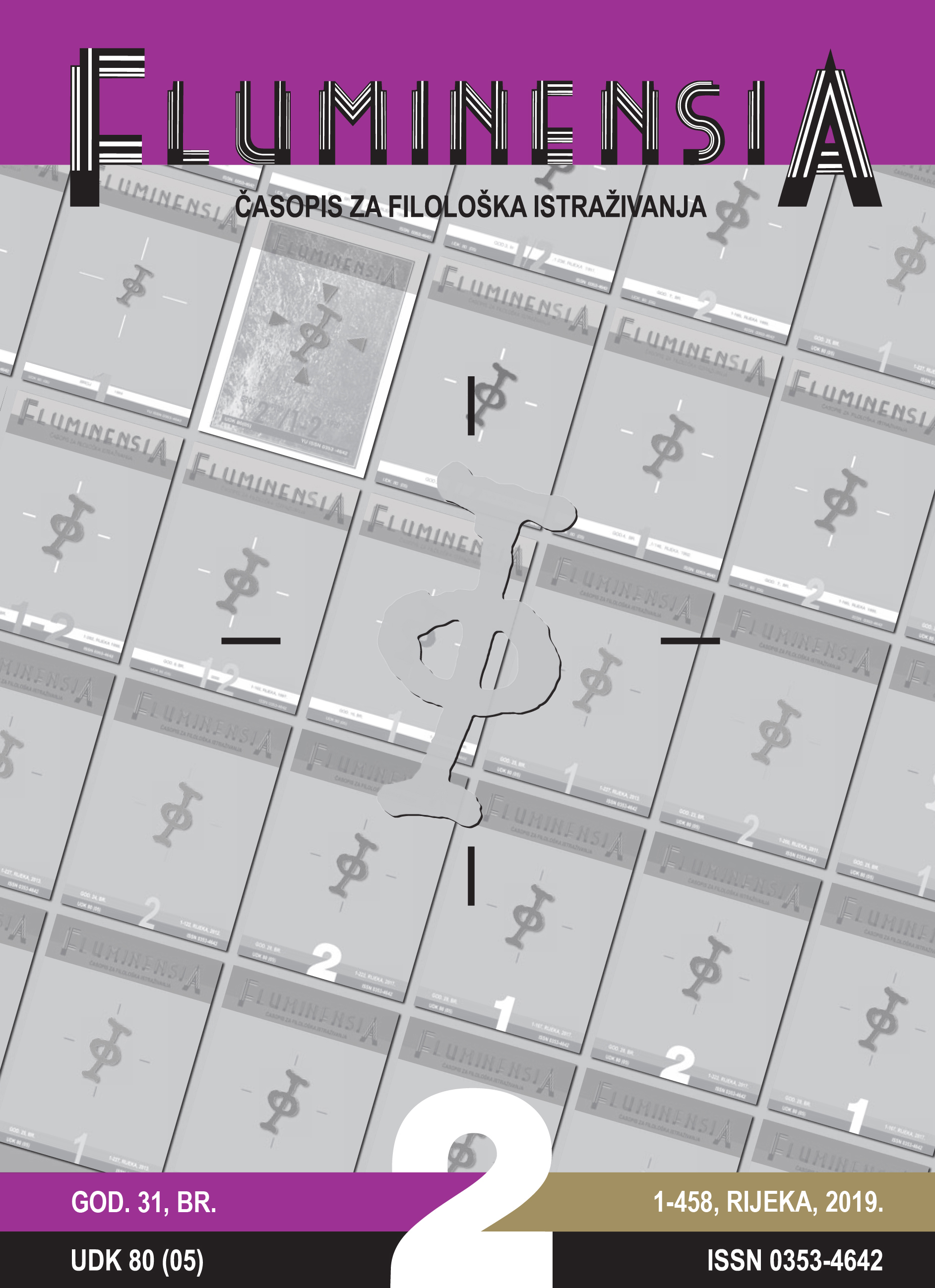The First and Second Edition of one of Ivan Supek’s Novels. The Problem of Linguistic Modifications Within the Cultural-Political Framework
Keywords:
Croatian language, language in novel, Ivan Supek, style, dialect, communication in cultureAbstract
The principal aim of this paper is to compare two editions of the war novel written by Ivan Supek in 1959 under the title The two between the frontlines which was re-edited in 1995 and published under the title Between the frontlines. The comparison deals with three aspects of linguistic reality: (1) the attitude towards the linguistic items perceived as Croatian/non-Croatian; (2) the absence/presence of dialects; (3) the stylistic and textual modifications. The inquiry reveals to what extent Supek’s idiolect was modified at these levels and which reasons could be given for the possible interpretations of these levels. The investigation of the first level demonstrates that, in the ‘50s, Supek tended to use items considered as Croatian, but the new edition is even more Croatianized. As far as the second level is concerned, whereas in the first edition dialects are omitted, and characters speak the same way as the narrator, in the second, one of the characters speaks in the Kajkavian dialect (this is interpreted as a consequence of the role that the dialect in question has had in Croatian culture since the National Revival, over Miroslav Krleža’s literary interventions until the literary movement called after Aleksandar Flaker – the jeans prose). The stylistic level reveals that the author intentionally modified his attitude towards World War Two by encoding different roles for the Croats and Serbs within the universe of the novel, and by rewriting the position of the Croatian Peasant Party during the war. All shifts are ideological in character, but they differ in terms of making various intra-cultural references.

